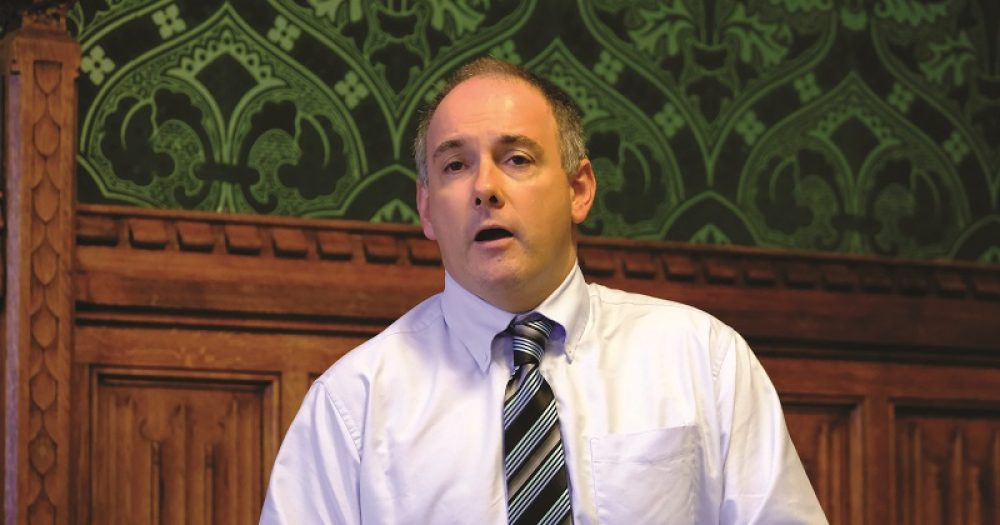Schools should be forced to publish termly data on the number of exclusions they make and the number of pupils who leave of their own volition, MPs have said.
The parliamentary education committee has released a report on exclusions, which calls for a “bill of rights” for excluded pupils and improvements to alternative provision.
Here are some of the most important findings.
1. Make schools publish termly exclusions and leavers data
To incentivise schools to exclude a pupil only when absolutely necessary for the pupil and school, they should have to make their permanent and fixed-period exclusions public.
It should be published every term, by year group, and include specific data on how many pupils with special educational needs and those in care were excluded.
Schools should also have to publish data on the number of pupils who have left the school each term.
2. Restore the power of independent review panels to reinstate pupils
The power of independent review panels (IRP) – which hear parents’ appeals against permanent exclusions – to force schools to reinstate pupils was removed in 2011.
At the moment, these panels can only direct governors to reconsider their decision to exclude a pupil, but not to take the pupil back.
MPs want this to change. They also raised concerns that parents have the odds stacked against them, because IRPs are made up of a school governor, a representative of the headteacher and a member of the public.
The committee also said parents should also get support from an “independent advocate” if their child is excluded for more than five non-consecutive days over the school year.
3. Force all AP settings to register with LAs
The committee found there is an “inexplicable” lack of clear information about what alternative provision is available in each local authority.
This is largely because a lot of existing AP is unregistered.
All organisations offering alternative provision should have to inform the local authority, and the latter must then make the list available on their website.
All providers that offer alternative provision for more than two days a week must also register with the DfE and face Ofsted inspection.
This follows a revelation in Schools Week that many academies use alternative providers which are not inspected by Ofsted or are registered.
4. Rename PRUs
PRUs and other AP schools should be renamed to remove the “stigma” associated with their current names.
In consultation with pupils, the government should consider other names, such as “specialist provision”.
Ministers should also encourage more specialist alternative providers, such as those which focus on mental health or medical needs, to open.
5. Improve post-16 alternative provision funding
The report blasts the government for the “extraordinary” decision to raise the age at which pupils may leave education or training to 18, but not to adequately fund post-16 alternative provision.
MPs say there is a “clear will” in the sector to provide more post-16 education to pupils in alternative provision, and a clear need on the part of pupils.
6. Give LAs more powers
The government’s exclusions review should clarify whose responsibility it is to ensure that excluded or off-rolled pupils are properly educated.
Ultimately, local authorities should be given the “appropriate powers” to ensure every pupil receives the education they need.
There should also be a senior person in each local authority responsible for the educational achievements of pupils in AP, just like the virtual school head role for looked-after pupils. It must be a separate post held by a different person, not merged with the virtual head role.
7. Make mainstream schools ‘buddy’ with AP settings
MPs say every mainstream school should be “buddied” with an AP school to share expertise, and offer teachers and pupils access to learning opportunities.
Trainee teachers should also have to do a placement in a special school or alternative provision in order to get their qualified teacher status, to help with their understanding of the non-mainstream sector.
Ofsted should also carry out thematic inspections of in-school alternative provision to get a sense of best practice.
8. Reform Progress 8 and investigate strict behaviour policies
The committee is worried that accountability measures like Progress 8 are contributing to rising exclusions and off-rolling.
MPs are also concerned about the impact of “zero-tolerance” behaviour policies on vulnerable pupils.
You can read more about that here.








Teachers need to able to teach to do their job. Pupils need to be able to learn. The government expects all children to make good progress throughout their education. All of this is not possible if lessons are regularly disrupted by a small minority of troublesome, disruptive youngsters. Of course, there are always the do-gooders and over-indulgent parents who cannot see any wrong with these challenging pupils (mostly they aren’t the ones who have to accept responsibility for educating them), and naively expect teachers to continue. How does that actually work in practice? Exclusion is never a first option, but at some point it becomes the inevitable consequence of obnoxious behaviour for the general good. We either support teachers in their efforts to raise standards or we allow the unruly to reign. Simple choice really!